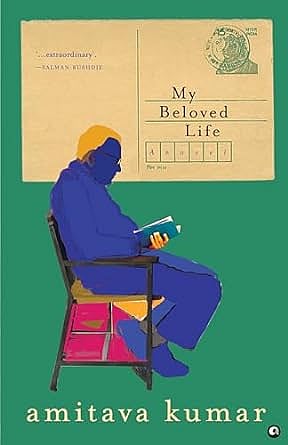Time’s River

A snakebite precipitates the birth of Jadunath aka Jadu, the primary character of this excellent novel. It starts in 1935, in a small village in Bihar and moves swiftly, like a rain-swollen river rushing through great cities, famous people, and momentous events. Yet the scale remains modest and unpretentious throughout.
The snake that bit Jadu’s mother did not kill her, but its influence lingers in Jadu’s name, “magic”. Perhaps on account of the story he’s been told of his mother’s miraculous survival and his own birth soon after, he harbours a fondness for seeing patterns of coincidence. In every other way however, he’s a rationalist who counts his change with the same shrewd clarity with which he assays his friendships. A statement he makes in the final quarter of his life is both poignant and utterly true. “Poverty was our politics,” he says in answer to a question about a friend from his past.
The homespun directness of this statement reflects not merely Jadu’s core beliefs but the core of what this book tells us. The narrative follows Jadu through the stations of an Indian life—school, college, job, marriage and fatherhood. Along the way the journey is seeded with stories, each one offering a particular vignette of truth. Yet at the foundation of Jadu’s life and that of all his friends, is an experience of poverty of the unglamorous worms-wriggling-in-shit kind. It grounds him in a way that nothing else can and it grounds the book too.
The story is told via three points of view. Jadu’s is in the third person, in the long first section. His daughter Jugnu is in the first person in the equally long second section, followed by Jadu again, briefly. Then, rather unexpectedly, a character called Maati appears in a short section all to herself, in the first person. She gives the impression of being an afterthought. Which in some ways is exactly what she is.
It's the Pits!
13 Feb 2026 - Vol 04 | Issue 58
The state of Indian cities
There’s a wonderful passage in which Jugnu recalls something she absorbed from her parents’ conversation when she was seven years old. Her father observes that his parents’ lives “were governed by the needs of the livestock they owned. The times at which his parents had woken, or washed, or prayed, or eaten had all been governed by the clock that ruled when the buffalo and cows had to be given fodder or water. Unlike his parents’, his own life, my father said, was governed by when his daughter was to be fed. This was the change from the village to the city.”
She goes on to speculate that she was too young at the time to know whether he was exaggerating or merely joking. What she registers is the sense of her own worth to her parents and, by association, to herself. A profound change had occurred in the culture, on the subject of self-worth. Her parents, as the hinge between the generations, were able to look uneasily from one to the other, as if uncertain which one was best.
There are many sudden deaths in the book and many lives shortened by the sorts of casual catastrophes that become newspaper headlines only in the country and sometimes only in the districts where they occur. Like a steady drumbeat, the stories of people crushed by the wheel of inequality surface, fade back, then surface again in altered forms. Not all those who are born into serfdom are crushed, however. Ramdeo Manjhi, a friend from Jadu’s college days, is one such character. He talks of his untouchability openly, causing others in the class to go silent with discomfort.
When he tells Jadu of his experiences of caste-based discrimination, he explains, “Tragedy is a demon that has a tail attached to it. The tail is the lesson that you are supposed to draw from the tragedy. This is the truth that civilization has recognized through the ages so that you don’t feel robbed of everything. The demon burned down your house. Oh, but at least you got the chance to warm your hands on the fire.”
An echo of that story appears in the second half of the book, when Jugnu, Jadu’s daughter, now living in the US is scorched by the demon of Covid. She’s a journalist with CNN by then but grounded by travel restrictions. The pandemic consumes her father and he dies alone. Yet Ramdeo, now a powerful politician, helps smooth out the funeral arrangements even at a distance. A little later, Jugnu succeeds in being assigned to cover the second wave in India. She shares an exchange uploaded to the Internet by a young Dalit engineer in Pune. He is unable to reach his ailing parents in Muzaffarnagar because of travel restrictions. But a cruel stranger tweets a response to the engineer’s anguish, advising him not to fret as “his parents were probably already in heaven cleaning latrines.”
This ghastly anecdote is based on something that really did happen. Other examples of news items appear like a garland of truth merged with the fictional fabric of the novel. The character of Jugnu is one of the many triumphs of the book as also the ease with which the East-West divides are acknowledged, toyed with and then gently left in place.
There is neither condemnation nor celebration in the many complex and horrific social realities that are described. The tone is one of wry melancholy. Rather like the author’s expression in the photograph on the back-cover. “Join me,” he seems to say, of his book. “On a journey to break your heart, in my beloved country.”

